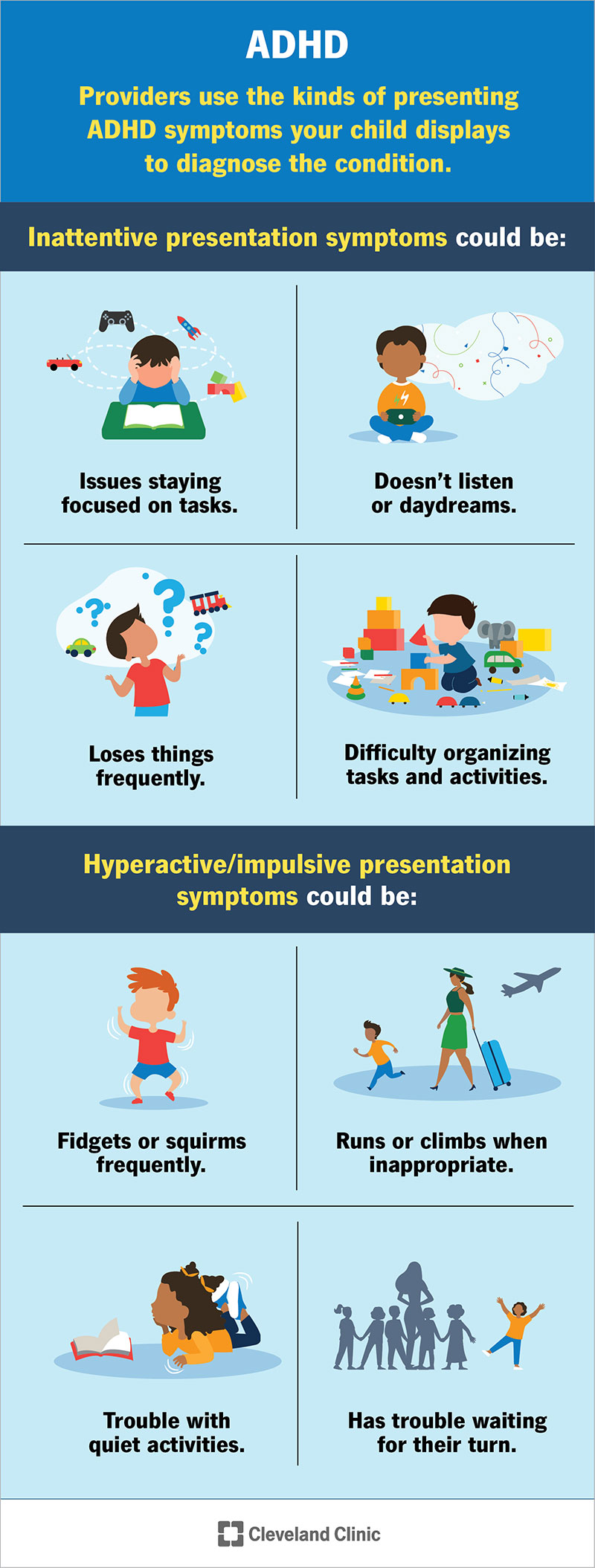The Benefits of Individualized ADHD Therapy Plans for Better End Results
The implementation of customized ADHD treatment plans has emerged as an essential approach in enhancing therapeutic outcomes for people influenced by this problem (ADHD treatment). By identifying the distinct symptoms of ADHD in each individual, these customized interventions advertise higher interaction and inspiration, inevitably leading to more efficient coping methods.
Recognizing ADHD Variability
Although Attention-Deficit/Hyperactivity Disorder (ADHD) is commonly viewed as a particular condition, its indications can differ substantially among people. This variability is influenced by an array of factors, consisting of age, gender, coexisting conditions, and ecological contexts. Children with ADHD might exhibit hyper habits, while grownups may mostly have a hard time with focus deficits. Sex differences additionally play a role, as men are more regularly diagnosed with ADHD and often show extra overt signs and symptoms, whereas women might present with less noticeable inattentiveness.
In addition, individuals with ADHD may experience a range of psychological and behavioral obstacles, such as anxiety or oppositional defiance, that can make complex medical diagnosis and therapy. The interaction of these elements can cause varied experiences of ADHD, demanding a nuanced understanding of the disorder. It is also worth noting that ADHD can provide in different ways throughout different cultural contexts, affecting how signs are identified and dealt with. This understanding emphasizes the importance of acknowledging ADHD as a complex problem, which requires customized techniques to therapy that think about the one-of-a-kind needs and experiences of each individual.
Trick Components of Personalization
Customized ADHD therapy strategies are grounded in a number of vital components that ensure effective management of the problem. First, a comprehensive evaluation is crucial, involving standardized score ranges, meetings, and behavior monitorings. This complete evaluation permits clinicians to recognize the individual's unique signs and symptoms, strengths, and obstacles.
Second, the participation of several stakeholders, consisting of parents, educators, and the individual, adds to an alternative sight of the person's requirements. Collaboration cultivates a supportive atmosphere that can adjust to the individual's context and way of living.
Third, treatment strategies need to be versatile and versatile, permitting adjustments based upon ongoing comments and the person's evolving requirements. This flexibility allows the combination of numerous therapeutic techniques, such as behavior interventions, psychoeducation, and medicine monitoring.
Moreover, cultural and contextual aspects must be thought about. Identifying the person's background, worths, and choices ensures that the treatment is appropriate and considerate.
Last but not least, regular follow-ups and assessments are vital to check development and make needed changes. By concentrating on these key components, customized ADHD treatment strategies can significantly enhance the effectiveness of interventions, resulting in improved outcomes for individuals with ADHD.
Enhanced Engagement and Motivation
To properly advertise boosted involvement and inspiration in people with ADHD, it is necessary to incorporate strategies that resonate with their passions and toughness. Individualized treatment plans that line up with an individual's passions can cause raised engagement in healing activities, fostering a sense of ownership and enthusiasm for the procedure.
Making use of interactive and creative techniques can additionally considerably improve motivation. For instance, incorporating gamification elements or real-world applications of abilities can make tasks more attractive and relevant. This not just records focus however likewise strengthens learning with enjoyable experiences.
Additionally, establishing achievable and significant goals customized to the individual can strengthen motivation. When people see their progression towards personally considerable objectives, they are more probable to continue to be engaged. Normal feedback and acknowledgment of accomplishments can better suffer inspiration, creating a favorable feedback loop that urges continued initiative.
Lastly, promoting a supportive atmosphere where people feel comprehended and valued can significantly affect their engagement levels. When therapy strategies are developed collaboratively, integrating input from the person, they are most likely to really feel bought their journey, inevitably leading to enhanced end results in managing ADHD.
Improved Coping Methods
Developing improved coping approaches is important for people with ADHD, as it equips them with effective tools to browse day-to-day obstacles. An individualized therapy strategy enables the identification of particular coping systems tailored to the person's distinct requirements and scenarios - ADHD treatment. Strategies such as mindfulness, time monitoring skills, and organizational strategies can be integrated into daily routines, fostering a sense of control and minimizing stress and anxiety
Mindfulness techniques, consisting of reflection and deep-breathing workouts, aid people with ADHD focus their attention and manage their feelings. Time monitoring approaches, such as making use of timers or damaging jobs right into smaller sized, workable steps, can mitigate sensations of overwhelm. Additionally, organizational tools like planners and lists can enhance effectiveness and accountability.
Lasting Positive Results
Executing tailored ADHD treatment plans can bring about substantial lasting favorable outcomes for individuals. These tailored techniques, which consider unique signs and symptoms, choices, and life situations, assist in a lot more reliable administration of ADHD signs and symptoms with time. By concentrating on the particular demands of the individual, these strategies boost adherence to therapy protocols and foster greater interaction click here for more in restorative activities.

Moreover, tailored therapy plans can significantly lower the danger of comorbid conditions, such as anxiousness and check out here anxiety, which are commonly connected with ADHD. Early intervention and regular assistance help people build durability and coping strategies, promoting total mental health.
Eventually, the long-term favorable outcomes of tailored ADHD treatment intends not only enhance the quality of life for individuals yet also add to their total well-being and success in different life domain names. This holistic technique emphasizes the significance of customized care in handling ADHD properly.
Conclusion
